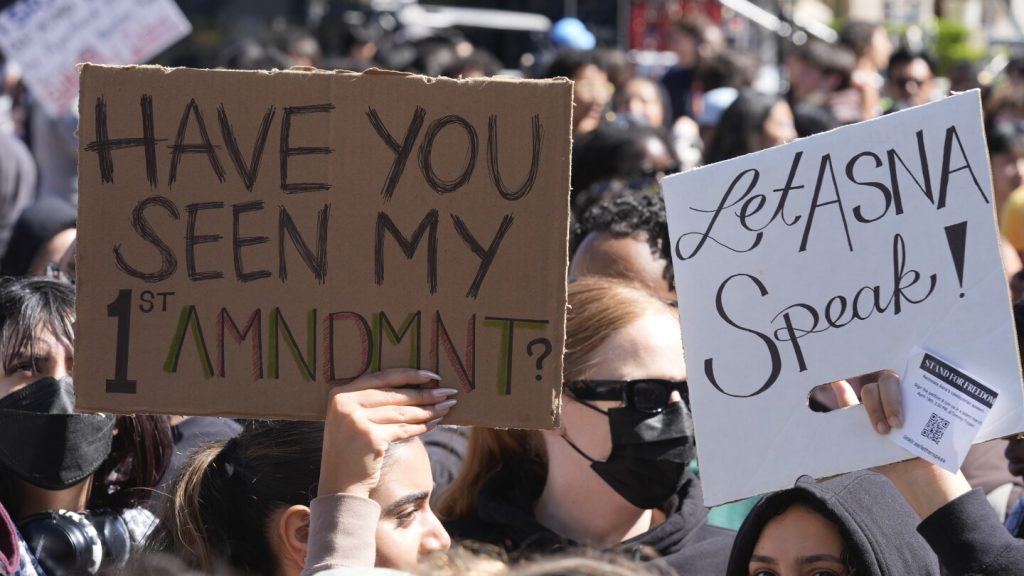In a controversial move, the University of Southern California announced the cancelation of filmmaker Jon M. Chu’s keynote speech at their commencement ceremony, just days after disallowing valedictorian Asna Tabassum from speaking due to safety concerns. Tabassum, who is Muslim, has shown support for Palestinians in the ongoing Israel-Hamas conflict, leading to a divisive response from various groups. The decision was met with praise from pro-Israel organizations but drew condemnation from free speech advocates and the Council on American-Islamic Relations, prompting students and faculty to protest silently on campus.
Following the backlash, the university has stated that they are now “redesigning” the entire commencement program and releasing outside speakers and honorees from attending the ceremony. This decision comes after discussions with the individuals involved, with hopes of conferring honorary degrees at future events. Jon M. Chu, a graduate of USC and a renowned filmmaker known for projects like “Crazy Rich Asians” and the upcoming Broadway adaptation of “Wicked,” was originally scheduled to deliver the keynote address at the ceremony.
With over 65,000 attendees expected at the commencement, including 19,000 graduates, the university’s handling of the situation has sparked a debate on free speech and open dialogue on college campuses. As the Israel-Hamas conflict continues to spark tensions, universities are facing challenges in balancing free speech rights with maintaining a respectful and safe environment for all students. In a recent incident at Columbia University, pro-Palestinian protesters were removed by law enforcement, leading to arrests and suspensions of students involved in the demonstration. New York Mayor Eric Adams emphasized the importance of upholding university policies while respecting the right to free speech.
As tensions surrounding the Israel-Hamas conflict continue to impact academic institutions, USC’s decision to alter its commencement plans reflects the ongoing struggle to navigate sensitive political issues in an educational setting. The cancelation of Asna Tabassum’s speech and Jon M. Chu’s keynote address indicate the complex dynamics at play when addressing controversial topics in university settings. Moving forward, universities will continue to face challenges in balancing the principles of free speech with ensuring a safe and inclusive environment for all students.
As the commencement season approaches, colleges and universities across the country are bracing for potential disruptions and debates surrounding contentious issues such as the Israel-Hamas conflict. The case of USC serves as a reminder of the delicate balance required to address political controversies while upholding the values of free speech and academic freedom on campus. Institutions must navigate these challenges thoughtfully and transparently to ensure that all voices are heard while maintaining a respectful and inclusive environment for their students.


